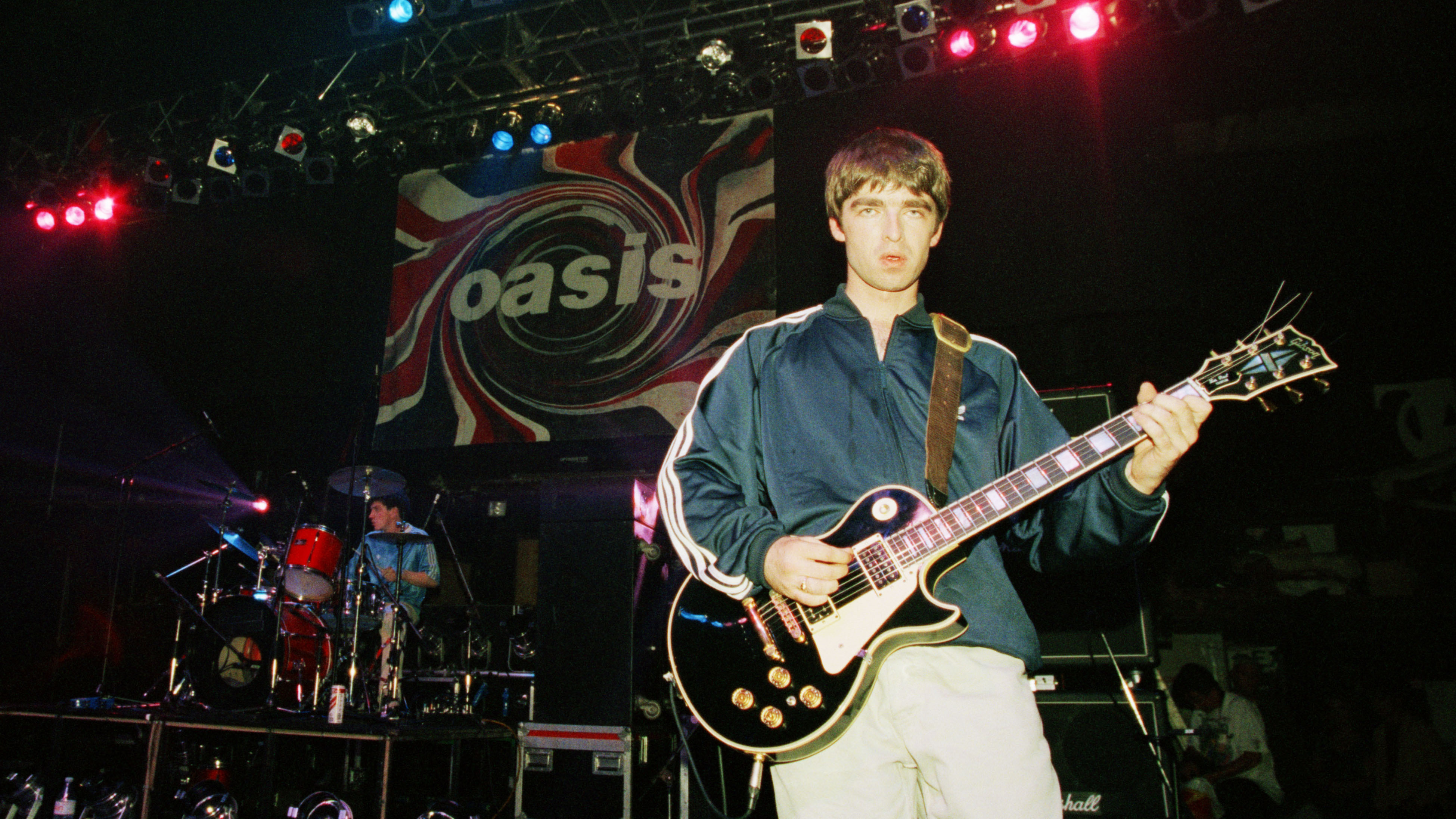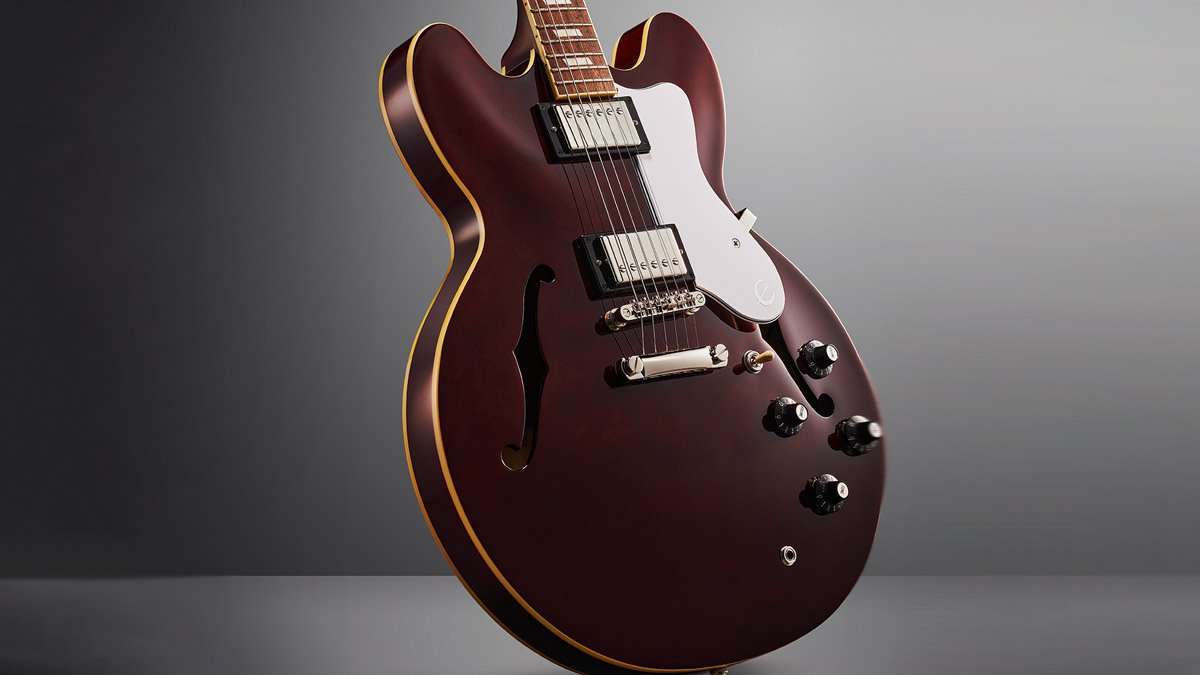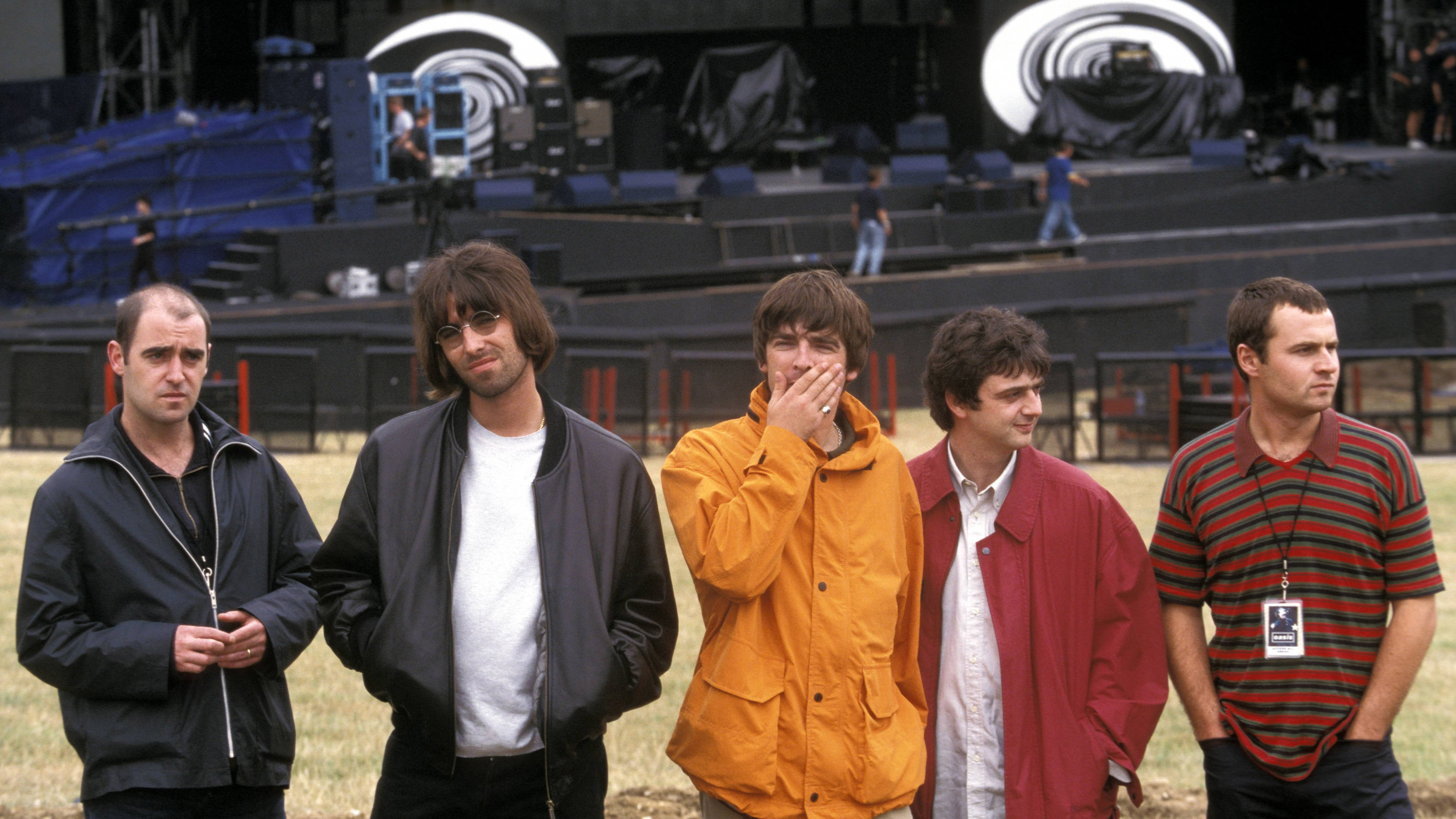“It was the tune that changed everything” for Noel Gallagher and Oasis, with his greatest guitar solo – but it turns out that Live Forever got a serious guitar edit in the control room
"It was essentially the same solo that’s on the finished version Noel always plays live, but when it went high on the second half all I could think of was Slash in leather kecks with a wind machine on the Grand Canyon"

Want all the hottest music and gear news, reviews, deals, features and more, direct to your inbox? Sign up here.
You are now subscribed
Your newsletter sign-up was successful
Wind the clock back to the beginning of 1993, and Oasis were just a skint gang of loud-mouthed retro rock ’n’ rollers attracting crowds of between five and 10 people at various Northern dives. By the end of the following year, those loud-mouthed retro rock ’n’ rollers had unleashed the (then) fastest-selling British debut album of all time and were leading a musical revolution. And that was just the start.
It was one of the greatest moments I’ve ever had as a songwriter
No band since the Sex Pistols has inspired so many kids to pick up the guitar and start their own bands, and it remains to be seen whether a British guitar group will ever sell over 50 million records again.
Oasis’ first long player, Definitely Maybe, is widely heralded as being one of the greatest debuts ever recorded, while the band’s third single, Live Forever (which preceded the album by just a few weeks), is regarded as one of Noel Gallagher’s finest pieces of writing; not least by the man himself. The song, which Gallagher senior had part-written before he joined his little brother Liam’s band, was key to him convincing the others that he had to be their main songwriter and bandleader.
“I remember playing [Live Forever] to them on an acoustic one night,” Gallagher told Q magazine in 1996, “it was one of the greatest moments I’ve ever had as a songwriter. They were utterly f***ing speechless. If I hadn’t had the songs they’d probably have told me to f*** off.”
I remember Nirvana had a tune called I Hate Myself And I Want To Die, to which I was like, ‘I’m not having that!'
While Gallagher has openly admitted that Live Forever’s melody was influenced by both The Beatles and The Rolling Stones, the lyrics were inspired by a more contemporary source.
“It was written in the middle of grunge and all that.” Gallagher explained on the Lock The Box DVD, which accompanied Oasis’ Stop The Clocks best of album. “I remember Nirvana had a tune called I Hate Myself And I Want To Die, to which I was like, ‘I’m not having that! As much as I like [Kurt Cobain] and all that s***, I’m not having that! I can’t have people like that coming over here on smack saying that they hate themselves and they want to die… that’s f***ing rubbish!” He hurtled on.
“I’m not saying it was written directly as a retort to that, but that was my thinking: ‘F*** that, man, kids don’t need to hear that nonsense!’ It seemed to me that he was a guy who had everything and was miserable about it and we had f*** all and I still thought that getting up in the morning was the greatest thing ever.”
Want all the hottest music and gear news, reviews, deals, features and more, direct to your inbox? Sign up here.

Definitely Maybe was recorded across multiple studios with several different producers and engineers, while some elements of Oasis’ early demos were also incorporated into a few of the final mixes.
As far as Live Forever goes, it’s likely that the core rhythm track was laid down at either Cornwall’s Sawmills studio or Johnny Marr’s Clear facility in Manchester, while Gallagher junior’s vocal was overdubbed by co-producer and mixing engineer Owen Morris at Loco in South Wales.
Gallagher probably played one of his Les Pauls using a combination of a Marshall and Vox AC30, while rhythm guitarist Paul ‘Bonehead’ Arthurs recorded his parts across Definitely Maybe using his favourite Epiphone Rivieras.
It was essentially the same solo that’s on the finished version Noel always plays live, but when it went high on the second half all I could think of was Slash in leather kecks with a wind machine on the Grand Canyon
Owen Morris
The first mix Morris attempted for Live Forever was of Oasis’ original demo version, but his attempt to cut the guitar solo in half was not received favourably by the eldest Gallagher.
“I muted Noel’s guitar solo at the halfway point!” Morris told Q magazine in 2010. “I wasn’t taking the mix seriously as I knew it was a demo and they’d re-recorded it, but it was all they had at that stage with a lead vocal before I recorded Liam’s final vocals. So Marcus [Russell, Oasis’ manager] asked me to have a look at it.
"It was essentially the same solo that’s on the finished version Noel always plays live, but when it went high on the second half all I could think of was Slash in leather kecks with a wind machine on the Grand Canyon. I had a message from Marcus saying Noel was bemused I’d cut his solo in half and not done it again on the final mix!”
I remember him phoning up Marcus and saying: ‘There’s one song here that’s got 17 guitar solos on it – all of ’em going at the same time!'
However, Gallagher did appreciate Morris’ approach when it came to toning down the number of guitar overdubs as excessive layering that had mired the group’s earlier attempts at final mixes.
“We were trying to get everything that we’d recorded into the mix somewhere and it wasn’t quite sounding right.” Gallagher explained on the Definitely Maybe DVD. “We sent it to Owen to mix and he just took all the best ones. I remember him phoning up Marcus and saying: ‘There’s one song here that’s got 17 guitar solos on it – all of ’em going at the same time!’ Marcus said to me, ‘Which one of these [solos] is the one?’ And I was like, ‘F***ing all of ’em! What you talking about, man? Put ’em all in!’"

The 6 non-album Noel Gallagher Oasis songs you need to hear (that aren't on The Masterplan)
Live Forever was the first Oasis single to break the UK’s top 10, and over the next 16 years the band would notch up a staggering seven No. 1 UK albums and a further 22 top 10 singles. Looking back, Gallagher certainly agrees that Live Forever was a turning point.
“It was the tune, as I remember, that changed everything.” He talked with pride on Lock The Box. “It set off a chain reaction [and] everything followed on from that… and that was the tune that got us the record deal really, wasn’t it? Once [Creation records owner Alan] McGee heard it he was like, ‘F***ing hell!’”